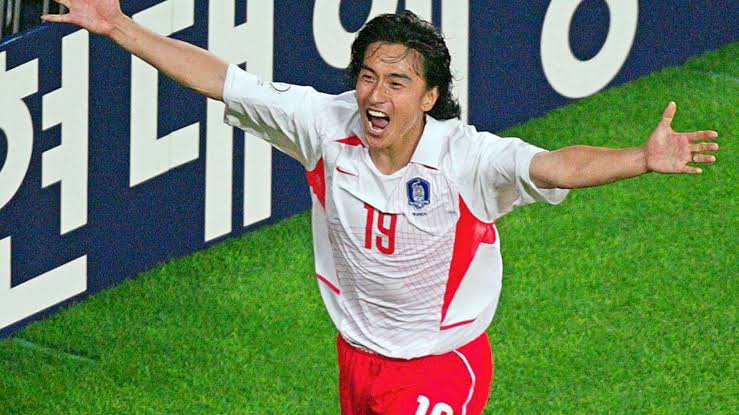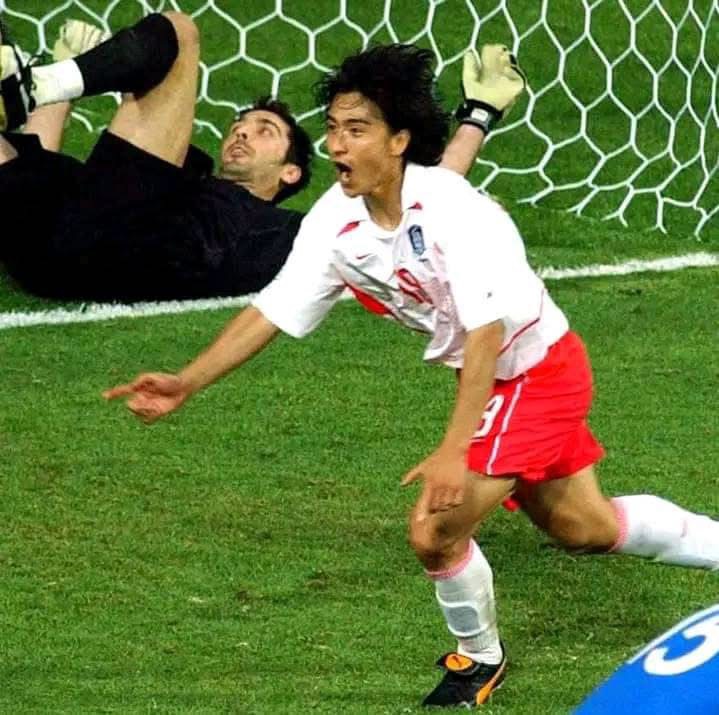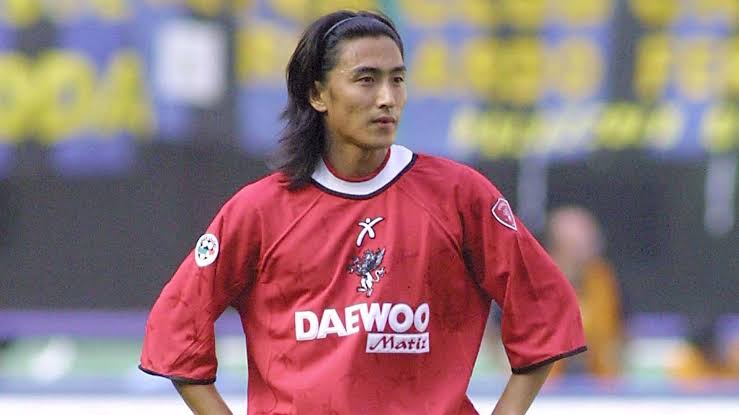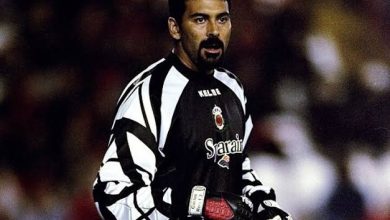The untold story of how a golden goal sparked national celebration and personal fallout
From World Cup Glory to Club Rejection: Ahn Jung-Hwan’s Unbelievable 2002 Story

Throwback Thursday : A Shocking Tale from the 2002 FIFA World Cup
On this Throwback Thursday, we journey back to one of the most dramatic and controversial moments in World Cup history, the 2002 Round of 16 clash between South Korea and Italy. It was a match that would leave a deep scar on Italian football and change one man’s life forever.

The date was June 18, 2002. Italy, a football powerhouse with multiple World Cup titles, faced tournament co-hosts South Korea. The stakes were high: a spot in the quarter-finals was on the line.
Italy struck first, with a goal in the 18th minute. With their lead secured, they shifted into defensive mode, determined to protect their narrow advantage until the final whistle.
But fate had other plans.
South Korea, backed by a passionate home crowd, refused to give up. Their relentless pressure finally paid off in the 88th minute, when they found the equalizer that sent shockwaves through the stadium.
The Italian bench was livid, they had been minutes away from progressing. Still, they believed they had the edge if the match went to penalties. After all, South Korea’s penalty record wasn’t exactly impressive.
But just when everyone thought it would go the distance, South Korea stunned the world again.
In the 117th minute of extra time, Ahn Jung-Hwan, a player many Italians didn’t expect much from, rose above the defense to score a golden goal. It was a moment of pure magic and heartbreak for Italy.
The South Koreans erupted in celebration. For Ahn Jung-Hwan, it should have been the highlight of his career. But the aftermath was anything but celebratory.
Ahn wasn’t just a player for the South Korean national team; he was also a professional footballer in Italy, playing for Serie A side Perugia at the time. You’d think that scoring such a crucial goal would elevate his status in Italy. Instead, it made him a target.

Luciano Gaucci, the outspoken chairman of Perugia, didn’t take kindly to being knocked out of the World Cup especially not by one of his own players.
The next day, Gaucci publicly announced that Ahn was no longer welcome at Perugia. He claimed he didn’t want to pay a player who had “humiliated” Italy on the world stage. In a bizarre and petty move, Gaucci terminated Ahn’s contract and even refused to pay his salary.
When asked about his decision, Gaucci doubled down. “Ahn Jung-Hwan never played well for Perugia,” he fumed.
The football world was stunned. Ahn had gone from national hero to unwanted man in a matter of hours. Although Perugia later tried to backtrack on their decision and re-sign him, Ahn refused. His pride was hurt, and he chose to continue his career elsewhere.
This incident remains one of the most talked-about moments in World Cup history and not just because of the result, but because of what it revealed about football, patriotism, and pettiness.
Ahn Jung-Hwan’s goal may have knocked Italy out of the tournament, but the way he was treated afterward showed that even in the beautiful game, politics and personal emotions can sometimes overshadow talent and professionalism.
So today, as we reflect on this Throwback Thursday, let’s remember Ahn Jung-Hwan and not just for the goal that shook Italy, but for the resilience he showed in the face of unwarranted backlash.



